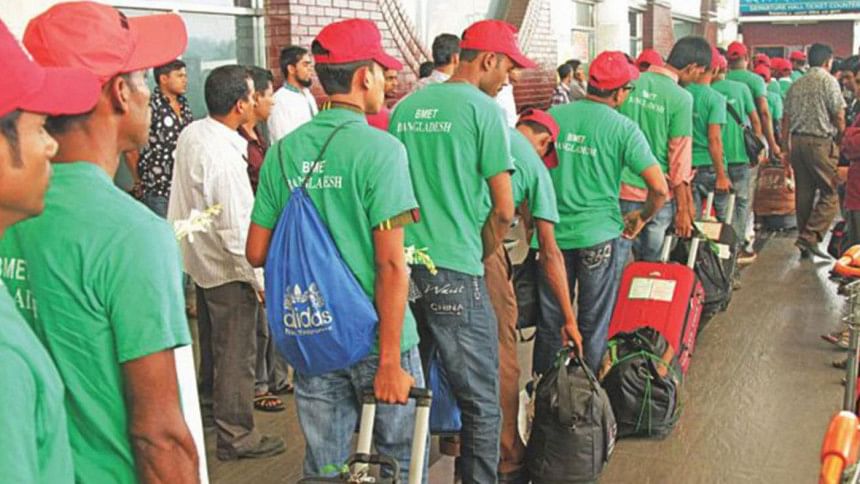Malaysia starts process of hiring workers

Malaysia has started the process of hiring workers from Bangladesh without settling the controversy surrounding the syndicate of 25 agencies chosen to conduct the recruitment.
"Yes, the process has started -- I think the workers can start flying from the end of this month," Imran Ahmad, the expatriates' welfare and overseas employment minister, told The Daily Star yesterday.
The recruitment cost per worker has been fixed at Tk 79,990, he said, without giving a breakdown.
The development comes after the Malaysian human resources ministry in a statement on July 14 said the attestation process involving more than 2,000 Bangladeshi workers has been completed by the Bangladesh High Commission in Kuala Lumpur and the process was expected to pick up in the coming weeks.
The employers who had paid the levy and plan to hire Bangladeshi workers could now submit their applications for confirmation of employment and work visa documentation to the Bangladesh High Commission in Kuala Lumpur, Malaysian news agency Bernama reported.
"However, the entry of Bangladeshi workers is subject to safety and health screening, including compliance with the requirements of the Immigration Department," the statement added.
Dhaka and Kuala Lumpur signed a memorandum of understanding on labour recruitment on December 19 last year after a pause of more than three years following allegations of a ten-member syndicate that manipulated recruitment during 2017-18.
The Malaysian government halted recruitment in September 2018 because the high cost of recruitment was causing forced labour and human trafficking.
Workers during that time were charged up to Tk 4 lakh each to go to Malaysia for jobs. As per the then MoU, the recruitment cost initially was Tk 40,000, which was later raised to Tk 1.6 lakh.
This time, after the signing of the MoU, M Saravanan, Malaysia's human resources minister, wrote to Ahmad on January 14 informing him that they would select 25 Bangladeshi agents and 250 subagents for the recruitment of workers.
This sparked protest from the other recruitment agencies, who said a syndicated system of recruitment would increase migration costs and lead to exploitation and money laundering, as was the case in the past.
In his reply to his Malaysian counterpart on January 18, Ahmad called for allowing all valid recruitment agencies in the hiring process to ensure transparency, highlighting the Bangladesh Competition Act 2012 and the ILO charters on overseas labour recruitment.
The Bangladesh government also handed over a list of 1,520 valid agencies to Malaysia.
Against this backdrop, the Malaysian Anti-Corruption Commission (MACC) in early July started an investigation into the allegations of syndication in the recruitment of Bangladeshi workers.
A MACC team raided the office of Bestinet, a Malaysian IT firm involved in the manpower recruitment process, and interrogated the officials.
Bestinet provides the software solution Foreign Workers Centralised Management System to the Malaysian government.
The move came a day after the youth wing of the Malaysian political party, People's Justice Party, submitted a complaint to the MACC.
The complaint also said Bestinet founder Mohd Amin Abdul Nor, a Bangladesh-origin Malaysian, had influenced the Malaysian government to limit the number of agencies supplying workers to 25 companies only.
Meanwhile, the Bangladesh Competition Commission has formed a team to probe the allegations into the syndicate on labour recruitment.
It sent a notice to Ruhul Amin (Swapan), the owner of Cathersis International, a recruitment agency, to appear at a hearing today.
Asked about the matter, Ahmad said as per the MoU, the issue of selecting the recruitment agencies is not in the hand of Bangladesh.
"But if there is anything illegal going on, we will surely play our role."

 For all latest news, follow The Daily Star's Google News channel.
For all latest news, follow The Daily Star's Google News channel. 



Comments